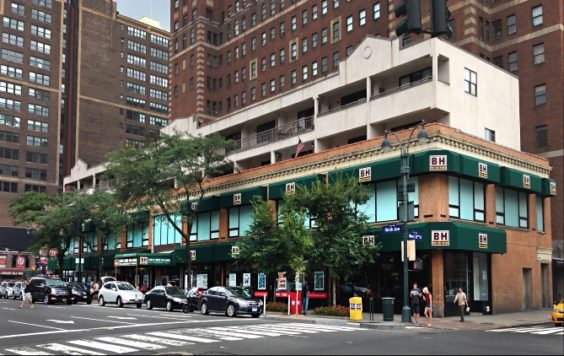A New York retailer – and perhaps its customers worried about higher prices being passed on to them – are all breathing a sigh of relief after learning the store doesn’t owe millions of dollars in back taxes, for improperly calling coupons “instant savings” in order to dodge state tax law.
A judge has ruled in favor of the B&H Photo Video Electronics store, in a tax dispute with New York’s Attorney General that could have implications for other retailers offering discounts to their customers.
B&H is an iconic independently-owned Manhattan superstore, the largest non-chain photo and video equipment seller in the country. Like all retailers, sometimes the store promotes items by putting them on sale. But two years ago, the state Attorney General’s office filed a tax-evasion lawsuit against B&H, claiming that for years it had failed to remit sales tax for manufacturer-funded discounts, to the tune of $7.3 million over about 13 years.
The case marked the latest in a series of complicated tax disputes involving discounts and coupons. If a retailer lowers the selling price of an item, sales tax is only due on that reduced price. But in most states, including New York, if a manufacturer funds the discount in the form of a coupon or a direct payment to the retailer, the customer owes tax on the full non-discounted price.
The Attorney General sued after discovering that B&H worked out deals with manufacturers to offer “Instant Savings” on products, and then only remitted sales tax on the discounted and not the full price. If those discounts were funded by the manufacturer, the state argued that sales tax was owed on the full selling price. “B&H deliberately chose not to pay the sales tax it knew was due to New York State in order to gain a competitive edge over companies that chose to follow the rules,” Attorney General Letitia James said at the time.
But B&H argued that its Instant Savings are not the result of direct payments from manufacturers – they’re simply based on its own decision to put items on sale, in which case sales tax is due only on the discounted selling price.
The key factor, the judge concluded, is that while B&H does receive consideration from manufacturers for each item sold, B&H chooses – but is not required – to discount the selling price. Theoretically, it could pocket the money that the manufacturer provides and still charge full price to its customers. It’s a subtle distinction, but an important one, when it comes to calculating taxes.
“The Attorney General believes that the ‘Instant Savings’ programs are just manufacturer’s coupons by a different name… stating both are third-party payments to the retailer when an item is sold,” the judge wrote in his decision, while “B&H believes that the ‘Instant Savings’ transactions are discounts offered by the wholesaler solely to the retailer, and B&H has the discretion to put the ‘Instant Savings’ items on sale.”
Under state law, the judge ruled, taxes are due on “the sale price of any property.” A manufacturer’s coupon is a form of payment, so if you pay for something with cash plus a manufacturer’s coupon, you’ll owe tax on the full amount. If it’s a manufacturer-funded discount that requires B&H to produce proof of sale in order to receive reimbursement from the manufacturer, that too is considered part of the total transaction that’s subject to tax.
But in this case, “B&H’s ‘Instant Savings’ program cannot be considered a manufacturer’s coupon,” the judge ruled. Since “the retailer receives a payment from the manufacturer regardless of whether the customer receives a discount… ‘Instant Savings’ is merely a marketing tactic to attract customers to a storewide sale, rather than evidence of a manufacturer’s coupon.”
It’s similar to the way sales tax is applied at the grocery store. Manufacturers provide retailers with trade promotion funds that the retailer can use to advertise the manufacturers’ products, set up in-store displays, offer samples, store coupons or in-store sales. Since the store is not specifically required to put an item on sale, or directly reimbursed by the manufacturer for the difference in price, customers only owe sales tax on the amount they actually pay. Using the New York Attorney General’s logic, you might be required to pay sales tax on the full price of everything you buy, even if it’s on sale.
So the judge’s ruling in favor of B&H is not only a win for the store, but a potential win for shoppers everywhere – by clarifying when sales tax is due on a reduced price, and when it isn’t. The decision isn’t binding on other states, but it could make other Attorneys General think twice before bringing any similar lawsuits against retailers in their states. So the next time you buy an item on sale, and don’t have to pay sales tax on the full price – you may have a photo store you’ve never been to, to thank for it.
Image source: B&H Photo Video
















